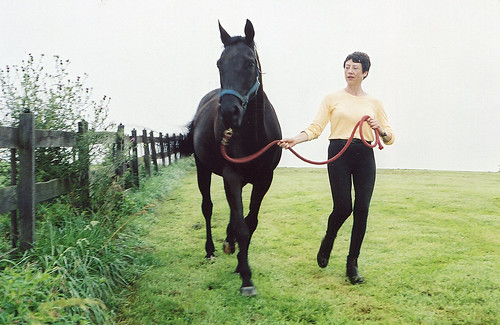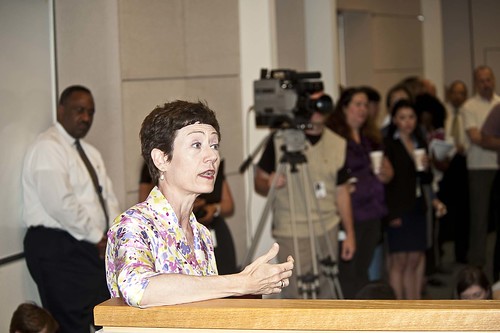
Hello, I’m Dr. Andrea (Andy) Morgan, Associate Deputy Administrator of USDA's Animal and Plant Health Inspection Service (APHIS)’s Animal Care (AC) program. In 1985, when I hadn’t been out of vet school long and was working at a small animal practice, I got ahold of a brochure about APHIS’ Public Veterinary Practice Career Program. I was interested in working not just with small animals but with other animals, too—exotic animals and horses, to name a few. So I joined APHIS that year, and here I am, still working for the agency 26 years and many important experiences later.
My current position involves a lot of strategic planning and working within the program to find ways USDA can be more effective with Animal Welfare Act and Horse Protection Act inspections. Before I joined the AC program, I held a number of positions in APHIS’ Veterinary Services. I served as National Incident Commander for the U.S. response to an Exotic Newcastle Disease outbreak and National Coordinator for the Bovine Spongiform Encephalopathy (BSE) surveillance program.
The most memorable experience I’ve had at APHIS was ensuring the U.S. Equestrian Team horses could travel to the 1992 Summer Olympics in Barcelona, Spain. An unidentified equine illness hit New England that year before all of the 24 horses had left the United States. The European Union (EU) Commission wanted to ban the entry of all U.S. horses into EU Member States. I was a staff vet with APHIS’ National Center for Import/Export, and I had to assure the EU that none of the Equestrian Team horses had been affected by the outbreak.

For several hours, my EU counterpart Dr. Bernard Van Goethem and I were on the phone and faxing proposals back and forth. Keep in mind this was before e-mail was widely used. We were just two vets, hashing it out across the ocean. Dr. Van Goethem would share the proposals with EU Member States’ Chief Veterinary Officers and get back to me. Eventually, we all agreed on a proposal. I was especially glad to learn that Irish, one of the horses that wouldn’t have made it to Spain without those efforts, won the Olympic bronze medal in show jumping.
It’s the coolest thing to negotiate on behalf of the United States, or to make things happen in any number of ways when there’s a problem to solve. Are there challenges when working as a public veterinarian? Always. But it’s like swimming—there are no standard operating procedures—you have to just dive in. I’ve learned a lot about myself and my core values in my time at APHIS. This is my legacy.

